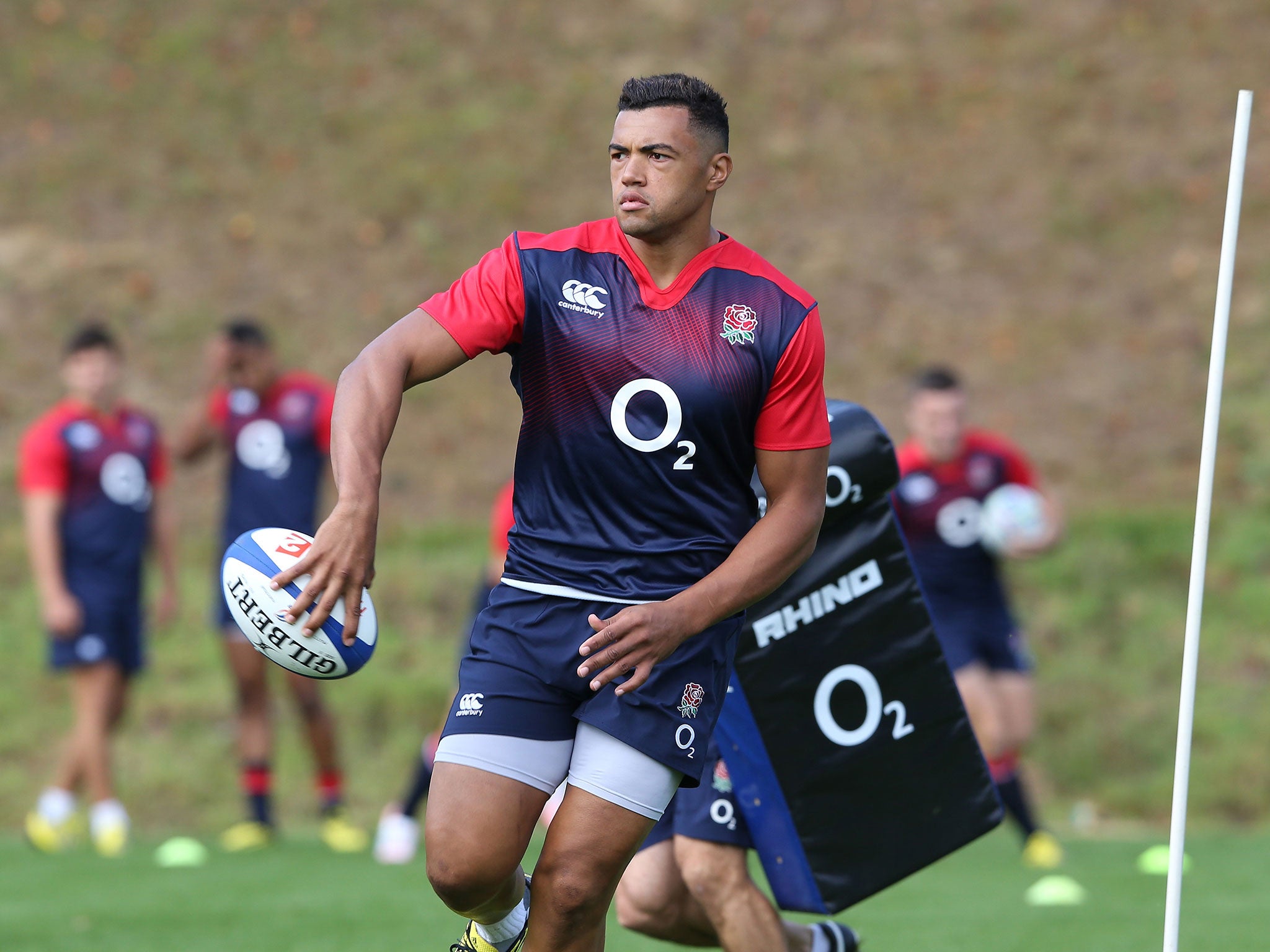France vs England: Luther Burrell put on the spot to secure England Rugby World Cup place as France bring back the big guns
There are clear signs that Stuart Lancaster is more interested in Burrell's physicality than in his rival Henry Slade's distributive creativity

Your support helps us to tell the story
From reproductive rights to climate change to Big Tech, The Independent is on the ground when the story is developing. Whether it's investigating the financials of Elon Musk's pro-Trump PAC or producing our latest documentary, 'The A Word', which shines a light on the American women fighting for reproductive rights, we know how important it is to parse out the facts from the messaging.
At such a critical moment in US history, we need reporters on the ground. Your donation allows us to keep sending journalists to speak to both sides of the story.
The Independent is trusted by Americans across the entire political spectrum. And unlike many other quality news outlets, we choose not to lock Americans out of our reporting and analysis with paywalls. We believe quality journalism should be available to everyone, paid for by those who can afford it.
Your support makes all the difference.If the Northampton midfielder Luther Burrell is to seal the deal on a World Cup place in Paris on Saturday night – and there is every reason to think he is a good step ahead of the Exeter youngster Henry Slade and the Gloucester captain Billy Twelvetrees in the race for the most hotly contested centre berth – he will have to do it the hard way. It is one thing impressing the right people at Test level. It is quite another doing it against the likes of Wesley Fofana and Mathieu Bastareaud.
France have reacted to their ho-hum performance at Twickenham last weekend, when their 19-14 defeat was largely the product of Slade’s brilliance with ball in hand and the high-class finishing of the Bath wing Anthony Watson, by making almost as many personnel changes as their rivals. Two of the more significant developments are the reappearances of Fofana and Bastareaud, who constitute a threat way above that associated with their immediate predecessors, Alexandre Dumoulin and Rémi Lamerat.
Burrell acknowledged the truth of it when he discussed his prospects. “They are two world-class centres, two of the best you will come across,” he said. “France also have Frédéric Michalak back at outside-half – a fantastic player – so it will be exciting for us. We can really test ourselves against that back line and see where we are. But I think we’re well prepped and we’re definitely ready to play. I believe we’ll be up to dealing with whatever they throw at us.”
There are clear signs that Stuart Lancaster, the head coach, is more interested in Burrell’s physicality than in Slade’s distributive creativity: the kind of thinking that explains the red-rose hierarchy’s growing infatuation with the cross-coder from rugby league, Sam Burgess, whose skill-set in union – tackling, decoy running, temperament, leadership, so-called “aura” – says something for his ability without the ball while saying precisely nothing about his gifts with it.
But if Burrell gets it wrong in Paris – if Fofana makes a mess of him in open field with that trademark combination of pace, strength and footwork – he could yet be the recipient of bad news from on high. In his gentle fashion, Lancaster has switched up the heat on the Yorkshireman, effectively telling him that he still needs a performance.
“Every game I’ve played with England, that pressure has been there,” Burrell said. “I think that when the pressure is on, I react positively to it. This weekend is less about sending a message than about performing well for the team, sticking to my role and not doing anything out of character.
“During my journey to where I am now, I’ve always had to overcome hurdles. It hasn’t been easy but I cherish the fact that I’m here, and one of the things I’ve learnt is that if you do the detail and train as hard as you can, things naturally fall into place.”
Scotland, who face Italy in Turin in the next stage of their warm-up programme, will award a first cap to the latest of their “kilted Kiwis”, the flanker John Hardie.
There are a good many people up Murrayfield way who will be pondering the ethics of handing an international debut to a New Zealander who did not arrive in the country until last month and has never played a minute’s rugby for any Scottish side, but he qualifies through ancestry and can claim to be acting within the letter of the law, if not the spirit of it.
Talking of spirit, one of the Wales internationals of recent vintage who pretty much embodied it in the rugby context – the former national captain and Lions Test back-rower Ryan Jones – has retired from the sport with immediate effect after fighting a losing battle against the chronic shoulder injury he suffered while playing for Bristol in May.
“The old cliché about making a decision with a heavy heart is true on this occasion,” commented the 34-year-old from Newport, who won 75 caps for his country in a 17-year career.
“There’s life after rugby, of course, but you can never fill the void. When you are 22 or 23, you don’t realise that, before you know it, you’ll be the grey-haired thirtysomething who’s a long time retired. That’s me today.”
Join our commenting forum
Join thought-provoking conversations, follow other Independent readers and see their replies
Comments